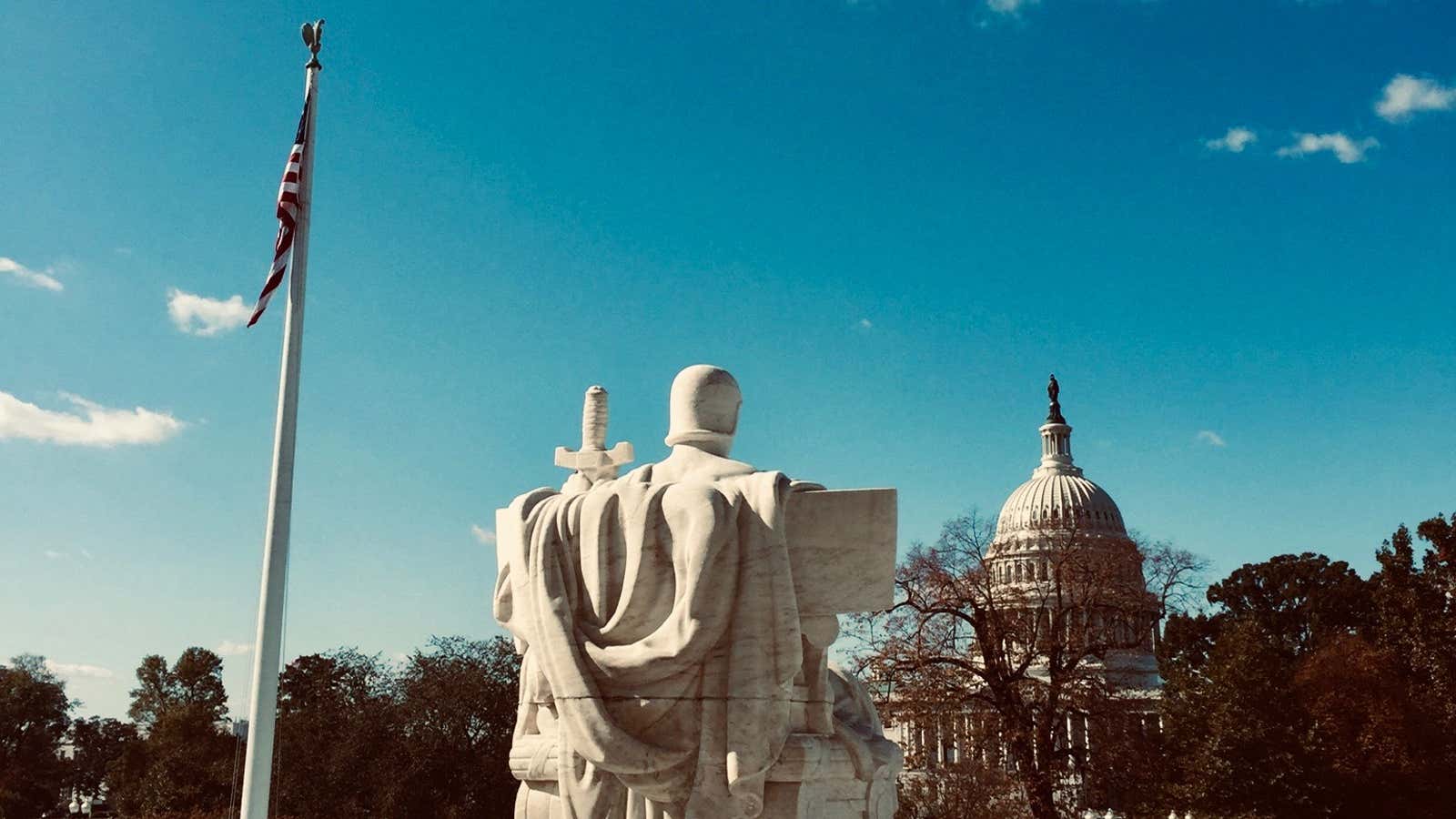This week, as Democrats were focused on an impeachment inquiry in the House, Republicans were celebrating a victory that went mostly unnoticed but could have long-term consequences for all.
The president has reached a milestone when it comes to appointing federal judges. The Senate on Nov. 7 confirmed William Nardini to a seat on the Second Circuit Court of Appeals with an 86-2 vote, making him the 45th appointee to a federal circuit court of 179 seats total to be named by Donald Trump in less than three years in office.
By way of comparison, president Barack Obama, who served two terms, appointed only 55 appeals court judges. Similarly, George W. Bush, before him, appointed 62 appeals court jurists in eight years.
Republicans have been especially attentive to the federal courts in recent years, and have made this attention a point of pride for the party. Senate majority leader Mitch McConnell, who thwarted former president Barack Obama’s appointments—most memorably Supreme Court nominee Merrick Garland—is toiling tirelessly to fill every available position with jurists who he sees as ideologically aligned with his party.
Trump and McConnell have overseen the appointments of more than 150 federal district and circuit court judges during this presidency, which is 40 more such appointments than Obama had made at the same point in his first term. The White House on Nov. 6 held a celebration to mark its judicial milestone. McConnell got a standing ovation.
They’ve also been celebrating on the campaign trail. “Nobody’s done more to change the court system in the history of our country than Donald Trump,” McConnell said at a rally in his home state of Kentucky on Nov. 4, which the president also attended. “And Mr. President, we’re going to keep on doing it. My motto is ‘Leave no vacancy behind.’”
Indeed, McConnell is intent on confirming at least 30 more federal court judges before the year’s end, Vice reports. Based on the president’s picks so far, that means the majority leader will usher in the confirmations of more young, white, conservative men. Only six of Trump’s appointees have been non-white and only one, Neomi Rao—whose views are extremely controversial—is a woman of color.
More importantly, the American Bar Association (ABA) has questioned the abilities of some of the nominees. For example, last month, senators heard from the lawyers’ association (pdf) that nominee Lawrence VanDyke had impressive experience but a bad track record. In a letter to senators, the association noted that “Mr. VanDyke’s accomplishments are offset by the assessments of interviewees that Mr. VanDyke is arrogant, lazy, an ideologue, and lacking in knowledge of the day-to-day practice including procedural rules.”
But the Senate had by then already confirmed five judges deemed unqualified by the ABA, which has come under fire for its assessment of VanDyke, by both Republicans and Democrats.
While it may at first glance seem natural for Republicans to focus their attention on filling the courts while they have the Senate votes to confirm the president’s picks, there is something a little unseemly about Trump and McConnell’s ideological rhetoric about the judiciary, which undermines the justice system generally. Federal judges are appointed for life precisely because they are supposed to be politically independent. By turning the courts into the locus of a political fight, Republicans are winning a battle but harming the courts and the very judges they appoint, and all Americans in the process.
As Supreme Court chief justice John Roberts reminded Trump last year, there are no “Obama judges” or “Trump judges.” Judges, unlike politicians, must both be and appear impartial. The more the Republican party emphasizes politics in its picks, the less legitimate the decisions of its jurists will appear. Long after the president is gone, his picks will be making decisions, and though their holdings may not be political, the charged political climate in which they have won their jobs makes it more difficult for the people who came before these judges to accept them as neutral arbiters of the law, a fact that justice Neil Gorsuch noted in his recently released book.
Many Americans, like the president, find it hard to believe that judges don’t decide every case based simply on their political affiliations. But there’s evidence that they are not purely ideologues and that conservatives and progressives on the bench can and do draw similar legal conclusions, a fact that might reassure Americans if they only knew it.
Trump and McConnell’s charged rhetoric isn’t helping to shift that dangerous perception of division. Quite the contrary, it only confirms that sense and undermines all Americans’ ability to have confidence in their country’s most important judges.
